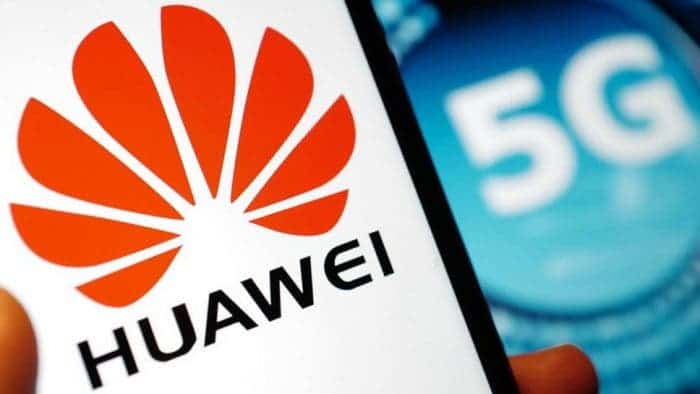Chinese manufacturing giant, Huawei, has been at loggerheads with the U.S. on multiple issues. The American government claims that Huawei poses a security risk. However, Huawei has vehemently denied these claims. Nevertheless, the U.S. has gone ahead to ban Huawei, a decision that is hurting the company in some regards. The U.S did not just ban Huawei, it is convincing whoever cares to listen to do the same. To this end, some U.S loyalists like Australia and others have already banned Huawei from their 5G network. While some have approved Huawei, others like the U.K are still hanging on a balance.
Washinton believes that Chinese Intelligence Law will force Huawei to spy for the Chinese government. In truth, the law actually sounds suspicious. Part of it reads “Any organization or citizen shall, in accordance with the law support, assist and cooperate with national intelligence work”. However, such laws are not new to us. Many countries have such laws that are in place to help the government fight crime or protect national security.
![]()
Huawei Speaks – See some laws that are similar to the Chinese Intelligence Law
Let us look at the U.S. “Electronic communication privacy act 1986”. Part of this law reads “A provider of wire or electronic communication service…shall furnish…all information, facilities, or technical assistance necessary” to intercept communications of American citizens or non-U.S. citizens living in the United States.
Another American law called FISA (Foreign Intelligence Surveillance Act) is quite similar to the Chinese new law. According to Wikipedia, “The Foreign Intelligence Surveillance Act of 1978 is a United States federal law that establishes procedures for the physical and electronic surveillance and collection of “foreign intelligence information” between “foreign powers” and “agents of foreign powers” suspected of espionage or terrorism. Although this law requires permission from a special court, the next statement is a huge surprise. In 2018, FISC received a whooping 1080 requests to carry out electronic surveillance and it approved ALL but one.
What about the U.S. CLOUD Act? This law says that the government can force U.S. tech companies to hand over data stored on servers outside the U.S. Thus, even if you are outside the U.S. and the server is also outside the U.S., so long as it belongs to an American company, the government can get a hold of the data in it.
In 2018, the Australian parliament passed the Assistance and Access bill into law. This law is also known as the “anti-encryption law”. Technically, this law can force Australian companies to disable the encryption that keeps their data private. The likes of Apple, WhatsApp, and Cisco spoke against this bill but it was passed anyway.
Experts say the Chinese Intelligence Law will not force companies to spy
Thus, the Chinese Intelligence Law is not unique, however, it still makes some people nervous. Many non-Chinese experts have looked into the law and there is nothing unique about it. Clifford Chance, a UK firm, Cremades and Calvo Sotelo, a Spanish firm had the same conclusion. The conclusion is “the Chinese Intelligence Law can not force companies to spy”.
Furthermore, the Chinese law applies only in China. It does not include subsidiaries or operations outside China. This is quite different from some of the U.S. laws above which gives the government access to data outside the U.S.
In conclusion, we will say that the Chinese Intelligence Law affects ALL Chinese companies. The likes of Xiaomi, OnePlus, Oppo, Vivo, BOE, etc will have to obey this law if need be. So the big question is “What’s So Special about Huawei?”. The same law ropes in all Chinese companies, why are other Chinese companies not getting the same ban? These are questions that beg for answers. From my point of view, it appears that as China grows rapidly industrially, it now sees the need to replicate pre-existing American laws.






It has never been about spying, just an excuse to hamper Huawei from threatening US dominance in tech. Afterall, Huawei is the #1 in 5G and is years ahead of competition and the US does not want that. Basically, it all boils down to something similar to #blacklivesmatter. Racism and white man politics.
What Marcus said is 100% true.
The situation with Huawei is different than other Chinese companies.. the problem here is that Huawei (and somehow ZTE) has advanced in 5G the territory where trump thought America will get ahead, but instead, Huawei got ahead and won the 5G race with more than 93 contracts signed with carriers worldwide! Therefore we are seeing economic war launched by trump against this particular company (and ZTE for getting in 5G business).
The reason why 5G became even more important for big countries than 4G/3G is because now 5G will get into every field including _military!_ The one who gets ahead in 5G will control future communications of the world who will also control weapons that works through this technology, and from this point on will get ahead in future communication technologies like 6G, 7G, 8G etc.
about Huawei I agree with you. But about race colours we have to make a lot of distinction what is racism! Cos a lot of countries for exampe in Europe they give in advance no white man… and they often have varying amounts of state support and contributions!